In logistics, clear understanding of the roles and responsibilities of different parties is essential for smooth operations. Among the key players are the shipper, consignee, and notify party, each with distinct functions that contribute to the efficient flow of goods. While these terms are often used interchangeably, they represent different stages and responsibilities in the shipping process.
Understanding these roles is crucial. As a shipper, you can ensure proper packaging and documentation to avoid delays at customs. Knowing when to expect your delivery as a consignee helps you plan accordingly.
This article will explore the differences between these roles, helping you gain clarity on their specific functions and the impact they have on logistics and supply chain management.
Definitions of all Parties Involved
Now that you’ve grasped the basic logistics flow let’s meet the key characters who bring the play to life. Buckle up because a well-coordinated performance is essential for a smooth delivery.
Shipper
A shipper is the person or company that initiates the shipment of goods. They are the ones who set the logistics ball rolling, ensuring the goods get from point A to point B.
A Consignee
In logistics, the consignee is the designated recipient of a shipment. They are the party waiting eagerly (or perhaps mildly annoyed if the delivery is overdue) for the goods to arrive.
Consignee vs. Ultimate Consignee: A Slight Distinction
Sometimes, an additional layer enters the logistics system: the ultimate consignee.
This term is used when the recipient on the bill of lading differs from the goods’ final destination.
For instance, a retailer might be listed as the consignee, but the ultimate consignee would be the customer who placed the online order.
The Notify Party
The notify party is an optional player that receives a copy of the shipment documents but isn’t directly involved in receiving the goods. They are typically informed for informational purposes or to take specific actions.
Here are some common scenarios:
- Banks: A bank holding payment for the goods might be listed as the notifying party. They won’t receive the shipment but will be notified upon its arrival, triggering the release of funds to the seller.
- Internal Departments: Within a large company, a specific department responsible for managing inventory might be designated as the notify party. This ensures they know of incoming shipments and can prepare for their arrival.
- Importers of Record (IOR): In the case of Amazon or Walmart shipments, the notify party is often the importer on record (IOR). The IOR is responsible for ensuring that imported goods comply with local laws and regulations, paying the associated duties and taxes, and managing the entry of the goods into the destination country.
IOR Services
Intoglo is partnered with leading compliance companies that offer IOR services for shippers. These services include:
- Compliance Management: Ensuring that all documentation and procedures adhere to the importing country’s regulations.
- Duty and Tax Payment: Handling the payment of import duties and taxes on behalf of the shipper.
- Regulatory Liaison: Acting as the intermediary between the shipper and customs authorities, facilitating smooth clearance of goods.
- Record Keeping: Maintaining detailed records of all transactions and shipments, which is essential for audits and compliance checks.
Each role in the logistics chain plays a crucial part in ensuring the smooth transit of goods. The shipper ensures the goods are prepared for travel, the consignee awaits their arrival, and the notify party (when involved) receives updates to perform their respective duties.
Clear communication and adherence to their responsibilities are essential for a harmonious performance. In the next section, we’ll learn about the roles and responsibilities of all the above parties.
Also Read: Understanding Deemed Exports in GST
Roles and Responsibilities of a Shipper
As the shipper, you wear many hats – from packer to negotiator to paperwork pro. Let’s break down your key responsibilities to ensure a smooth delivery:
Shipment Duties of a Cosigner
Your role starts even before the goods leave your doorstep. Here’s what you need to tackle:
- Classifying and Preparing the Goods: First, classify your goods accurately. Are they fragile electronics or hazardous materials? Knowing this helps ensure proper handling and avoids delays at customs. Now, secure packaging is essential! Choose the right materials to protect your goods from the rigours of transportation, considering factors like weight, fragility, and the chosen mode of transport.
- Correct Documentation: Paperwork might be less exciting, but it’s crucial. Get ready to create accurate and complete documents, including:
- Commercial Invoice: This details the shipment’s value, contents, and origin/destination countries.
- Packing List: An itemized list of the goods in the shipment, including quantities and descriptions.
- Bill of Lading (BOL): This acts as a receipt for the goods and a contract of carriage between you and the carrier. It details the shipment’s origin, destination, consignee, and other vital information.
- Selecting Your Carrier: Choose the most suitable carrier based on cost, speed, service level, and the shipment’s specific needs. Negotiating rates and booking the shipment with your chosen carrier is also part of your responsibility.
- Customs Clearance (When Applicable): You might need to handle customs clearance procedures for international shipments. This involves ensuring the shipment adheres to all import/export regulations and duties. Sometimes, you might employ a customs broker to navigate these complexities.
Packing, Documentation, and Compliance
Skimp on any of these three, and your shipment might hit a hurdle. Proper packaging safeguards the goods from damage, ensuring they arrive in good condition. Accurate documentation avoids delays at customs, keeping the shipment on schedule.
Regulatory compliance keeps everyone happy, customs authorities, carriers, and your consignee. By taking these aspects seriously, you’re setting your shipment up for success.
The Variance in Responsibilities Based on Incoterms
The world of international trade uses a standardized set of rules called Incoterms (International Chamber of Commerce terms) to define the responsibilities of buyers and sellers in a commercial transaction. Depending on the chosen Incoterm, the division of responsibilities between you (the shipper) and the consignee can vary.
For instance, under Incoterm EXW (Ex Works), your responsibility ends once the goods are placed at the buyer’s disposal at the origin. Under Incoterm DDP (Delivered Duty Paid), you take responsibility for delivering the goods to the named place of destination, including customs clearance.
Understanding your role as the shipper and collaborating effectively with other players in the logistics chain is critical to ensuring a smooth and successful delivery.
Also Read: Best Freight Forwarding Companies in Kolkata
Consignee’s Role and Responsibilities
The consignee plays a critical role in logistics and shipping, ensuring that shipments are collected, inspected, and correctly received.
Here’s an overview of the key responsibilities:
Legal Requirements for the Collection of Shipments
- Documentation: The consignee must present the necessary documentation to collect the shipment. This typically includes the bill of lading, commercial invoice, packing list, and other relevant paperwork.
- Customs Clearance: The consignee ensures the shipment complies with all customs regulations. This includes paying applicable duties, taxes, and fees and providing accurate and complete information to customs authorities.
- Compliance with Regulations: The consignee must adhere to all legal and regulatory requirements for the imported goods, including product standards, safety regulations, and import restrictions.
Inspection of Goods Upon Arrival
- Visual Inspection: Upon receiving the shipment, the consignee should conduct a visual inspection to check for any visible damage or discrepancies in the quantity and quality of the goods.
- Detailed Examination: A more thorough examination should ensure that the goods match the specifications outlined in the purchase agreement. This includes checking for damages, defects, or missing items.
- Reporting Issues: If any issues are found during the inspection, the consignee should promptly report them to the shipping company and the seller. Documentation of damages or discrepancies is crucial for filing claims or seeking resolutions.
Scenario Where the Buyer is Not the Consignee
- Third-Party Logistics (3PL): Sometimes, the buyer may use a third-party logistics provider as the consignee. The 3PL handles the collection, inspection, and storage of the goods on behalf of the buyer.
- Drop Shipping or FBA/WFS Shipments: For Fulfillment by Amazon (FBA) or Walmart Fulfillment Services (WFS), the Importer of Record (IOR) acts as the consignee on paper since the end buyer is different. The IOR is responsible for ensuring the goods comply with import regulations and paying any duties or taxes.
- Compliance and Duties: The IOR ensures all regulatory requirements are met and handles the payment of duties and taxes.
- Logistics Coordination: The IOR manages the entry of goods into the destination country, facilitating their subsequent distribution through Amazon or Walmart’s fulfillment networks.
- Agent or Representative: A buyer may appoint an agent or representative as the consignee. This representative is responsible for all consignee duties, including customs clearance, inspection, and collection.
Need a reliable FCL door-to-door shipping service? Reach out to Intoglo.
Understanding these roles and responsibilities helps ensure smooth and efficient logistics, minimizing delays and potential issues upon shipment arrival.
Also Read: Top 10 Freight Forwarding Companies in Mumbai in 2024
Notify Party’s Role and Significance
The Notify Party plays a crucial role in smoothly processing and delivering goods in international shipping. Here’s a detailed overview of their functions, differences, and similarities to the consignee and the impact of failing to notify them correctly.
Key Functions
- Receiving Arrival Notifications:
- The Notify Party is responsible for receiving notifications about the shipment’s arrival. This includes updates on the shipment’s status, estimated arrival time, and any delays.
- They act as a communication bridge between the shipping line and the consignee, ensuring that all relevant parties are informed about the shipment’s progress.
- Arranging Customs Clearance: The Notify Party’s involvement in customs clearance is crucial for the smooth transit of goods. They act as a liaison between the shipper, consignee, and customs authorities, ensuring that the clearance process is handled efficiently.
- Documentation Preparation: The Notify Party ensures that all required documents, such as invoices, packing lists, and certificates of origin, are accurately prepared and submitted. These documents are essential for customs authorities to assess the shipment and determine applicable duties and taxes.
- Coordination with Customs Brokers: Customs brokers are specialists who assist in navigating the complex customs regulations and procedures. The Notify Party often coordinates with these brokers to ensure that all customs requirements are met. This includes providing the necessary documentation and information to facilitate the clearance process.
- Liaison with Relevant Agencies: The Notify Party communicates with various government agencies and regulatory bodies that may be involved in the clearance process. This ensures that all regulatory requirements are fulfilled, and any issues are promptly addressed.
Differences and Similarities to the Role of the Consignee
- Similarities:
- Both the Notify Party and the consignee are involved in receiving and processing shipments.
- Both may need to coordinate with customs authorities and ensure compliance with import regulations.
- Differences:
| Feature | Consignee | Notify Party |
| Ownership of goods | Holds ownership or title | No ownership claim |
| Role in shipment | Receives goods upon arrival | Receives notifications, facilitates logistics |
| Primary responsibility | Taking possession of goods | Ensuring consignee is informed and shipment is processed smoothly |
Impact of Failing to Notify the Notify Party Correctly
- Delays in Customs Clearance:
- Please notify the Notify Party to avoid significant delays in customs clearance. With timely information, the Notify Party can arrange the necessary documentation and coordination with customs authorities, resulting in the shipment being held at the port.
- Increased Costs:
- Delays caused by failure to notify can lead to additional costs, such as demurrage charges, storage fees, and potential penalties for non-compliance with customs regulations.
- These additional costs can affect the shipment’s overall profitability and create financial strain for both the consignee and the shipping company.
- Operational Disruptions:
- Please notify the Notify Party to avoid operational disruptions, as the consignee may not be prepared to receive the goods, leading to logistical challenges.
- This can impact the supply chain, causing delays in production or distribution schedules.
By understanding the critical role and responsibilities of the Notify Party, businesses can ensure smoother, more efficient shipping operations and minimize delays and costs associated with international logistics.
Operational Details and Documentation
Efficient international shipping relies on precise documentation and clear roles for all parties involved.
Here’s an overview of the key documents, responsibilities, and the impact of accurate documentation on the logistics chain:
Key Documents Involved in the Shipping Process
- Bill of Lading (BOL): A legal document between the shipper and carrier detailing the type, quantity, and destination of the goods being shipped. It serves as a receipt for the shipper, a contract for the transportation of goods, and a document of title.
- Commercial Invoice: An essential document for customs clearance, providing details about the goods, their value, and the terms of sale.
- Packing List: This list includes the weight, dimensions, and contents for each package.
- Certificate of Origin: This certifies the country where the goods were manufactured; customs often require it for tariff purposes.
- Customs Declaration Form: Required for clearing goods through customs, detailing the nature and value of the goods.
- Insurance Certificate: Provides proof of insurance coverage for the shipment, protecting against potential losses or damages during transit.
Specific Documentation Responsibilities
Shipper
- Bill of Lading (BOL):
- Responsibility: The shipper prepares and provides the Bill of Lading.
- Commercial Invoice:
- Responsibility: The shipper prepares and provides the Commercial Invoice.
- Packing List:
- Responsibility: The shipper prepares and provides the Packing List.
- Certificate of Origin:
- Responsibility: The shipper prepares and provides the Certificate of Origin.
- Insurance Certificate:
- Responsibility: The shipper arranges for and provides the Insurance Certificate.
Consignee
- Customs Declaration Form:
- Responsibility: The consignee, or their appointed customs broker, prepares and submits the Customs Declaration Form.
- Commercial Invoice:
- Responsibility: While the shipper provides it, the consignee uses it for customs clearance.
- Packing List:
- Responsibility: Provided by the shipper, the consignee uses it for verifying received goods.
- Payment of Duties and Taxes:
- Responsibility: The consignee ensures the payment of any import duties, taxes, and other fees.
- Role: Facilitates legal entry of goods into the destination country.
Notify Party
- Coordination and Updates:
- Responsibility: The notify party receives arrival notifications and updates about the shipment’s status.
- Documentation Support:
- Responsibility: The notify party may assist in ensuring that all necessary documents are accurately prepared and submitted.
Additional Considerations
- Accuracy and Compliance: The shipper ensures that all documents are accurate and comply with the destination country’s regulations. Errors or omissions in documentation can lead to delays and additional costs.
- Record Keeping: All parties, especially the consignee, maintain accurate records of all shipping documents. These records are crucial for audits, compliance verification, and resolving any future disputes.
How Accurate Documentation Affects the Logistics Chain?
- Timely Customs Clearance: Accurate documentation ensures that shipments clear customs without delays, avoiding potential hold-ups at the border.
- Cost Efficiency: Proper documentation helps prevent additional costs such as storage fees, demurrage charges, and penalties for non-compliance.
- Operational Efficiency: Ensures that all parties in the logistics chain are well-informed and can coordinate effectively, leading to smoother operations and timely deliveries.
- Risk Mitigation: Reduces the risk of goods being detained, returned, or confiscated due to incorrect or incomplete documentation.
Accurate documentation is crucial for the smooth functioning of the logistics chain, impacting everything from customs clearance to final delivery. Each party involved in the shipping process ensures that all documentation is accurate and complete, facilitating efficient and cost-effective international trade.
The Impact of Incoterms on Roles
Incoterms, or International Commercial Terms, are crucial in defining the responsibilities, costs, and risks involved in international shipping. Understanding these terms is essential for ensuring smooth and efficient transactions between buyers and sellers.
Here’s how Incoterms influence each party’s responsibilities and some examples of their application.
Influence of International Commercial Terms (Incoterms) on Each Party’s Responsibilities
- Responsibility Allocation: Incoterms delineate the responsibilities of buyers and sellers regarding the delivery of goods. They specify who is responsible for transportation, insurance, and customs clearance at various shipment stages.
- Cost Distribution: These terms determine who bears the costs associated with shipping, including freight charges, insurance, and duties. This helps prevent disputes and misunderstandings between parties.
- Risk Management: Incoterms outline when the risk of loss or damage to the goods transfers from the seller to the buyer, providing clarity and reducing the risk of disputes over liability.
Examples of Incoterms and Their Application to Shipping Roles
- EXW (Ex Works):
- Seller’s Responsibility: The seller makes the goods available at their premises. The buyer is responsible for all costs and risks from that point onward, including loading the goods onto a vehicle and all subsequent transportation costs.
- Buyer’s Responsibility: The buyer handles everything from loading the goods to transportation, export, and import duties at the destination.
- Application: This is ideal for transactions where the buyer has more control over the logistics process and prefers to handle the shipping details.
- FOB (Free on Board):
- Seller’s Responsibility: The seller delivers the goods onto a vessel at a designated port. The risk and cost are transferred to the buyer once the goods are on board.
- Buyer’s Responsibility: The buyer assumes responsibility from the moment the goods are loaded onto the vessel, covering sea freight, insurance, and import duties.
- Application: Commonly used in maritime transport, suitable for buyers who prefer to manage the shipping from the point of departure.
- CIF (Cost, Insurance, and Freight):
- Seller’s Responsibility: The seller covers the cost of the goods, freight, and insurance up to the destination port. The risk transfers to the buyer once the goods are on board the vessel, but the seller still covers the transportation costs.
- Buyer’s Responsibility: The buyer takes over the risk once the goods are on board but benefits from the seller arranging and paying for the freight and insurance to the destination port.
- Application: This option is suitable for buyers who want the seller to handle the shipping logistics but still take on the risk once the goods are shipped.
- DDP (Delivered Duty Paid):
- Seller’s Responsibility: The seller takes on all responsibilities, including transportation, insurance, export and import duties, and delivery to the buyer’s premises.
Searching for a door-to-door FCL Shipment Company that specializes in DDP? Contact Intoglo Now!
- Buyer’s Responsibility: The buyer’s responsibility is minimal. They only take over once the goods are delivered to their location.
- Application: This option is best for buyers who prefer minimal involvement in the shipping process and want a comprehensive service from the seller.
Impact of Failing to Understand Incoterms
- Cost Overruns: Misunderstanding Incoterms can lead to unexpected transportation, insurance, and duties costs.
- Delayed Shipments: Inaccurate responsibility allocation can cause delays in customs clearance and other shipping processes.
- Disputes and Litigation: Ambiguities about who is responsible for what can lead to disputes and legal issues between the buyer and seller.
Understanding and correctly applying Incoterms is vital for smooth international trade operations.
Understanding Overlapping Roles
In the logistics and shipping industry, it’s not uncommon for one entity to assume multiple roles to streamline operations and reduce costs. However, this can lead to conflicts and challenges in fulfilling responsibilities.
Here’s an in-depth look at instances of overlapping roles and how to manage them effectively.
Instances When One Entity Assumes Multiple Roles
- Freight Forwarder as Notify Party and Customs Broker:
- Example: A freight forwarder coordinates the transportation of goods, acts as the notify party, and handles customs clearance.
- Advantages: This consolidation can streamline communication, reduce delays, and lower costs by minimizing the number of intermediaries.
- Challenges: The freight forwarder must have comprehensive knowledge and resources to handle the additional responsibilities effectively.
- Shipper as Consignee:
- Example: In scenarios like drop shipping, the manufacturer (shipper) may also act as the consignee if they retain ownership until the goods are delivered to the end customer.
- Advantages: This arrangement can simplify the supply chain and reduce administrative overhead.
- Challenges: The shipper must ensure compliance with all regulatory requirements at the destination and manage any risks associated with the final delivery.
- 3PL as Shipper and Notify Party:
- Example: A third-party logistics provider (3PL) manages the shipment from the warehouse, acts as the shipper, and serves as the notify party, updating the consignee on the shipment status.
- Advantages: This setup can enhance coordination and ensure seamless handling of logistics.
- Challenges: The 3PL must have robust systems to manage the various roles without errors or conflicts.
Resolving Conflicts and Fulfilling Responsibilities in Overlapping Roles
- Clear Role Definition:
- Documentation: Clearly define the roles and responsibilities in all contracts and shipping documents. Each party should know their specific duties and the scope of their authority.
- Training: Ensure all involved personnel are trained and knowledgeable about their roles.
- Effective Communication:
- Coordination: Maintain open and frequent communication between all parties involved. This helps promptly address any issues and ensures everyone is on the same page.
- Technology: Utilize advanced logistics and communication technologies to track shipments, share updates, and manage documentation.
- Compliance and Risk Management:
- Regulatory Compliance: Ensure that the entity assuming multiple roles complies with all relevant regulations and standards for each role they perform.
- Risk Mitigation: Implement risk management strategies, such as insurance and contingency planning, to address conflicts or issues arising from overlapping roles.
- Conflict Resolution:
- Protocols: Establish clear protocols for resolving conflicts arising from overlapping roles. This can include predefined steps for mediation, arbitration, or other dispute resolution mechanisms.
- Accountability: Assign accountability for each role and responsibility, ensuring no ambiguity about who is responsible for specific tasks or decisions.
By understanding and effectively managing overlapping roles, businesses can streamline logistics operations while mitigating risks and ensuring compliance.
Conclusion
The logistics network ensures that products move efficiently from manufacturers to consumers. Understanding the roles of shipper, consignee, and notify party helps streamline the process and avoid delays and additional costs. Clear communication, accurate documentation, and responsibility adherence are crucial for smooth operations.
For businesses seeking to optimize their logistics, partnering with a reliable provider is key. Intoglo offers comprehensive door-to-door Full Container Load (FCL) shipments from India to the USA, providing faster, cost-effective delivery with 24/7 support.
Contact Intoglo today to ensure your logistics operations are managed with precision and efficiency, allowing you to focus on growing your business confidently.


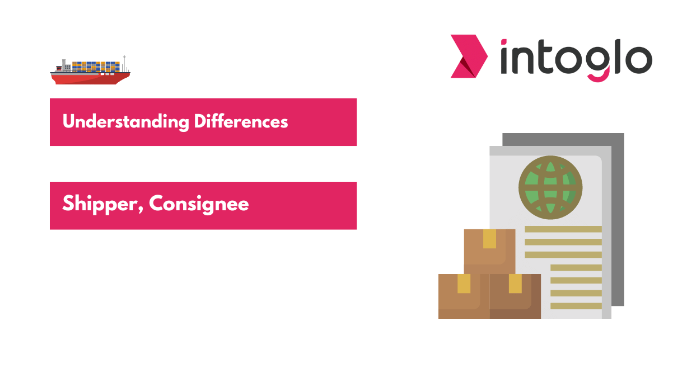
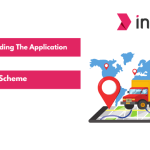
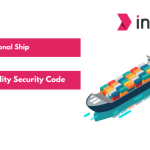
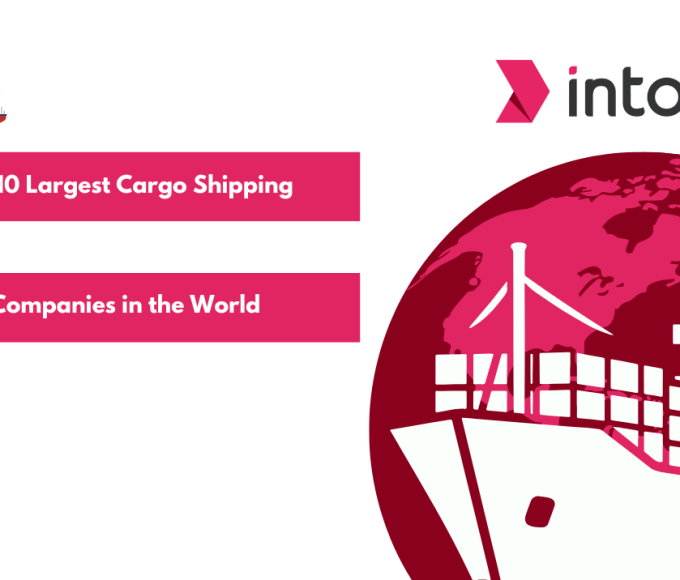
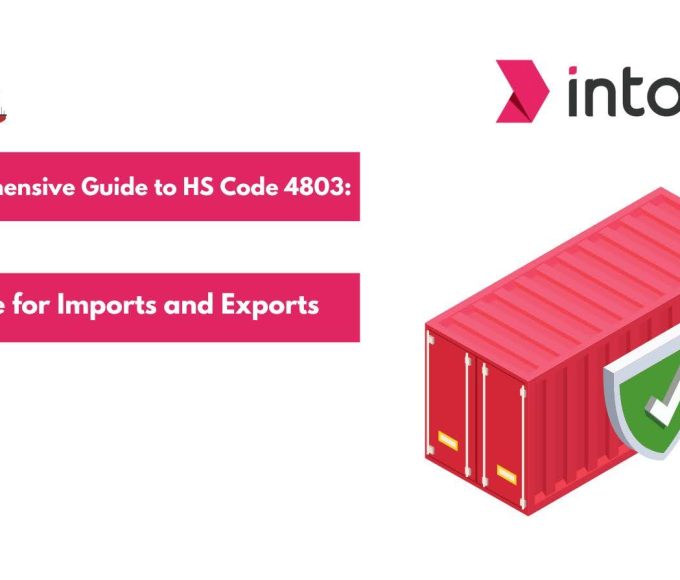
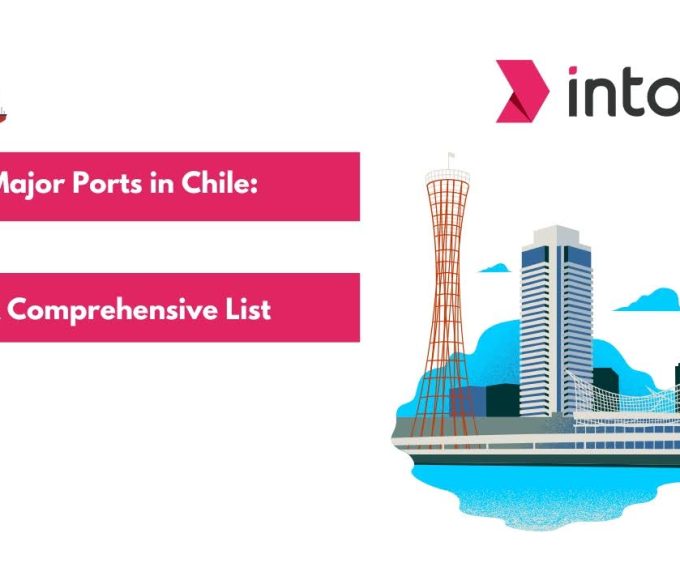
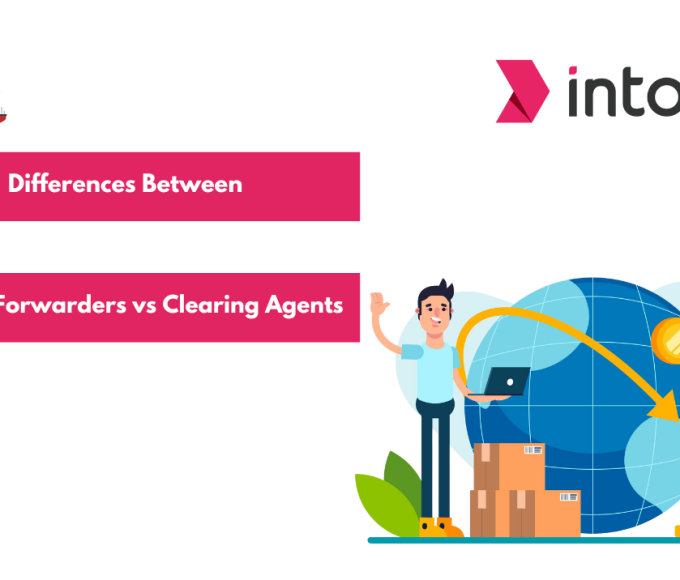
Leave a comment